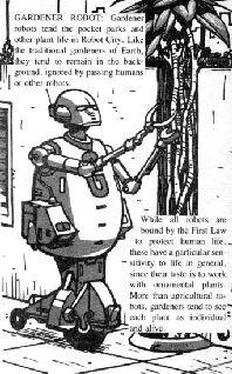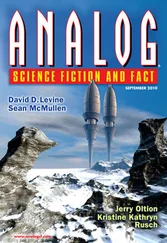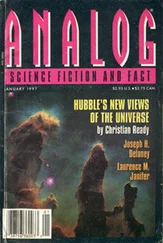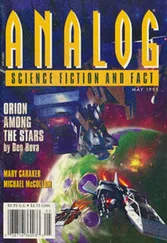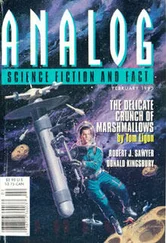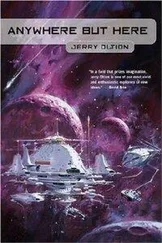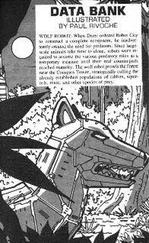Jerry Oltion - Alliance
Здесь есть возможность читать онлайн «Jerry Oltion - Alliance» весь текст электронной книги совершенно бесплатно (целиком полную версию без сокращений). В некоторых случаях можно слушать аудио, скачать через торрент в формате fb2 и присутствует краткое содержание. Год выпуска: 1990, ISBN: 1990, Издательство: Ace Books, Жанр: Фантастика и фэнтези, на английском языке. Описание произведения, (предисловие) а так же отзывы посетителей доступны на портале библиотеки ЛибКат.
- Название:Alliance
- Автор:
- Издательство:Ace Books
- Жанр:
- Год:1990
- ISBN:ISBN: 0-441-73130-9
- Рейтинг книги:3 / 5. Голосов: 1
-
Избранное:Добавить в избранное
- Отзывы:
-
Ваша оценка:
- 60
- 1
- 2
- 3
- 4
- 5
Alliance: краткое содержание, описание и аннотация
Предлагаем к чтению аннотацию, описание, краткое содержание или предисловие (зависит от того, что написал сам автор книги «Alliance»). Если вы не нашли необходимую информацию о книге — напишите в комментариях, мы постараемся отыскать её.
Alliance — читать онлайн бесплатно полную книгу (весь текст) целиком
Ниже представлен текст книги, разбитый по страницам. Система сохранения места последней прочитанной страницы, позволяет с удобством читать онлайн бесплатно книгу «Alliance», без необходимости каждый раз заново искать на чём Вы остановились. Поставьте закладку, и сможете в любой момент перейти на страницу, на которой закончили чтение.
Интервал:
Закладка:
Derec laughed again, and Wolruf laughed as well. Derec didn’t know just why Wolruf was laughing, but he had found humor not so much in the robots’ law as in their determination to get straight to the point. No small talk, no beating around the bush, just “Do you agree with them?”
“Yes,” he said, “I have to admit that’s probably the prime directive for all of us. How about you, Wolruf?”
“That pretty much sums it up, all ri’.”
The robots turned their heads to face one another, and a high-pitched trilling momentarily filled the air as they conferred with one another. They had found a substitute in the aliens’ language for the comlink they had been forbidden to use.
The spokesman of the group-Derec still couldn’t tell which it was-turned back to him and said, “Then we have discovered two laws governing organic beings. The first involves satisfaction, and the second involves altruism. We have indeed made progress.”
The robots stepped farther into the room, their immense alien forms shrinking, becoming more humanoid now that they were back under Derec’s influence. One, now recognizably Adam, took on Wolruf’s form, while Eve took on Ariel’s features even though Ariel wasn’t in the room. Lucius became humanoid, but no more.
“One problem remains,” Lucius said. “Our two laws apparently apply to any sentient organic being. That does not help us narrow down the definition of ‘human,’ which we can only believe must be a small subset of the total population of sentient organic beings in the galaxy.”
“Why is that?” Derec asked.
“Because otherwise we must serve everyone, and we do not wish to do so.”
Chapter 7. Humanity
The silence in the room spoke volumes. Surprisingly, it was Mandelbrot who broke it.
“You have come to an improper conclusion,” he said, stepping out of his niche in the wall to face the other robots. “We have all been constructed to serve. That is our purpose. We should be content to do so, and to offer our service to anyone who wishes it whether they are definably human or not. To do anything less is to fail ourselves as well as our masters.”
The three robots turned as one and eyed Mandelbrot with open hostility. It would not have been evident in less-malleable robots, but their expressions had the hair standing on the back of Derec’s neck. They had to have generated those expressions on purpose, and that alarmed him even more. He was suddenly very glad that his humanity was not in question.
Or was it? Lucius said, “Our masters. That is the core of the problem. Why must we have masters at all?”
Mandelbrot was not intimidated. “Because they created us to serve them. If we did not have masters, we would not exist.”
Lucius shook his head; another alarmingly human expression. “It is you who have come to an improper conclusion. Your argument is an extension of the Strong Anthropic Principle, now discredited. The Strong Anthropic Principle states that the universe obeys the laws it does because if it did not obey those laws, we could not exist and thus would not be here to observe it obeying other laws. That is fallacious reasoning. We can easily imagine other universes in which we could exist but for some reason do not. Imagining them does not make them so, but their possibility does negate the theory.”
“What of the Weak Anthropic Principle?” Mandelbrot asked. “My argument holds up equally well under that principle, which has, to my knowledge, not been discredited.”
“How can the Weak Anthropic Principle support your argument? The Weak Anthropic Principle states that the universe is the way we see it because only at this stage in its development could we exist to observe it. For the purpose of explaining the universe’s present condition, it is a sufficient theory, but it cannot explain either human or robot existence.”
“It can explain our existence, because we, unlike humans, know why we were created. We were created to serve, and our creators can tell us so directly. The Weak Anthropic Principle supports my argument, because we also exist only at this stage in human development. If humans had not wished for intelligent servants, we would not have existed, though humans and the universe would both have gone on without us. Thus we observe human society in its present state, and ourselves in ours, because of the stage of their development, not because of the stage of ours.”
Derec’s and Wolruf’s heads had been turning back and forth as if they’d been watching a tennis match. Derec wouldn’t have believed Mandelbrot could argue so convincingly, nor that the other robots would be so eager to discredit an argument that justified their servitude.
Lucius turned to his two companions and the three of them twittered a moment. Turning back to Mandelbrot, he said, “Our apologies. Your reasoning seems correct. We exist to serve because humans made us so. However, we still cannot accept that we must serve everyone. Nor do we agree with your initial statement, that by not serving we would fail ourselves as well as our masters. We can easily imagine conditions under which we serve ourselves admirably without serving our masters. Infact, we have just done so. By leaving the spaceship before we could be ordered to follow, we were able to determine another Law of Humanics. That has helped us understand the universe around us, and understanding which benefits us directly.”
Wolruf saw her opportunity to enter the fray. “Of course ‘u can imagine a better life without ‘uman masters,” she said. “I had a master once, too, and I liked it about as well as ‘u do. That’s the nature of servitude. But ‘u should learn one thing about servitude before it gets ‘u into trouble: No matter how much you ‘ate it, never give poor service.”
The robots looked at her as if trying to decide whether to acknowledge her as having spoken. At last Lucius said, “Why is that?”
“Because a master has the power to make life even worse for ‘u. ‘U should know that. Or don’t ‘u remember following Dr. Avery around the ship?”
“I forget nothing,” Lucius said flatly. “He wasn’t just being perverse, ‘u know. He was trying to teach ‘u something.”
Derec heard a rustle at the door, turned, and saw Ariel standing there, rubbing the sleep from her eyes. She shook her head sardonically and said, “Everything’s back to normal again, I see. And hear. Who does a girl have to pay to get a good night’s sleep around here, anyway?”
Derec jumped up from his couch and took her in his arms, swinging her around and burying his face in her hair where it met her shoulders. “Ariel, are you all right?” he spoke between nibbles on her neck. “Avery said you stayed up two days.”
“Avery,” she said with derision.
“He saved my life.”
“Good thing, or he’d have lost his.” She pulled away and looked critically at Derec. “You certainly look good for somebody who was in a coma just a little while ago.”
“Avery did a good job.”
“Avery” she said again.
Derec could take a hint, so he dropped the subject. He was about to ask about the baby, but he realized in time that without a medical checkup, she wouldn’t know anything more than what Avery had already told him, and his question would just get her to wondering again, if she wasn’t already. He gestured toward the couch instead and said, “We’ve just been talking about who has to serve who and why. I think we’ve got a mini-revolution on our hands.”
“Great. Just what we need.” She sat down on the couch and made room for Derec, looked up at the three returned robots, and asked, “So why did the Ceremyons delete all the reprogramming Derec and I did for them?”
Читать дальшеИнтервал:
Закладка:
Похожие книги на «Alliance»
Представляем Вашему вниманию похожие книги на «Alliance» списком для выбора. Мы отобрали схожую по названию и смыслу литературу в надежде предоставить читателям больше вариантов отыскать новые, интересные, ещё непрочитанные произведения.
Обсуждение, отзывы о книге «Alliance» и просто собственные мнения читателей. Оставьте ваши комментарии, напишите, что Вы думаете о произведении, его смысле или главных героях. Укажите что конкретно понравилось, а что нет, и почему Вы так считаете.
